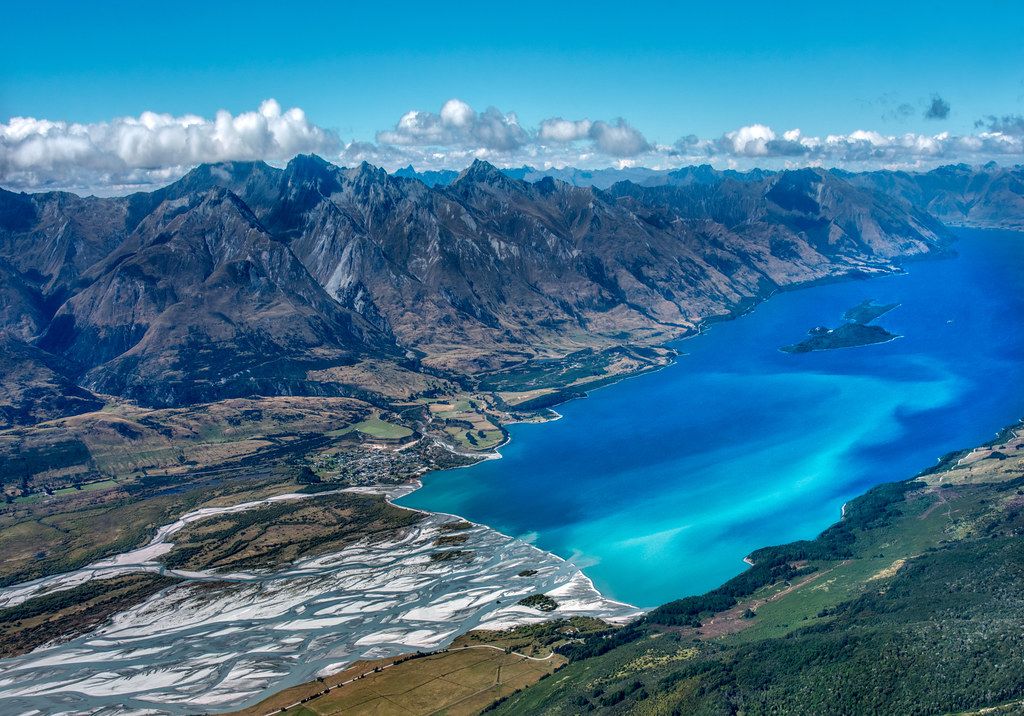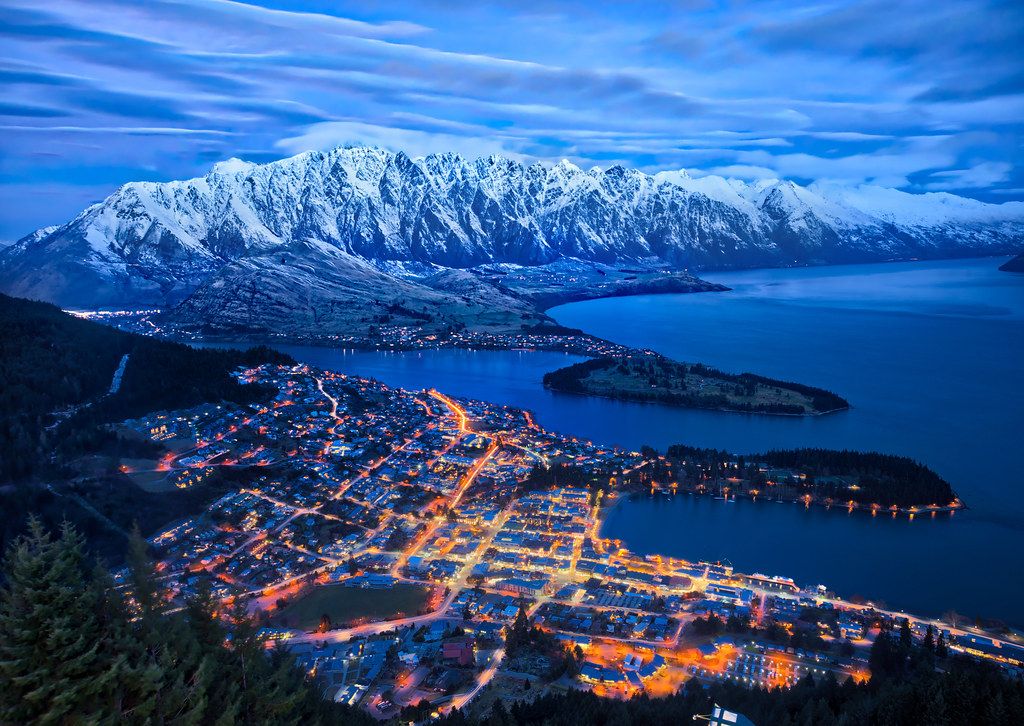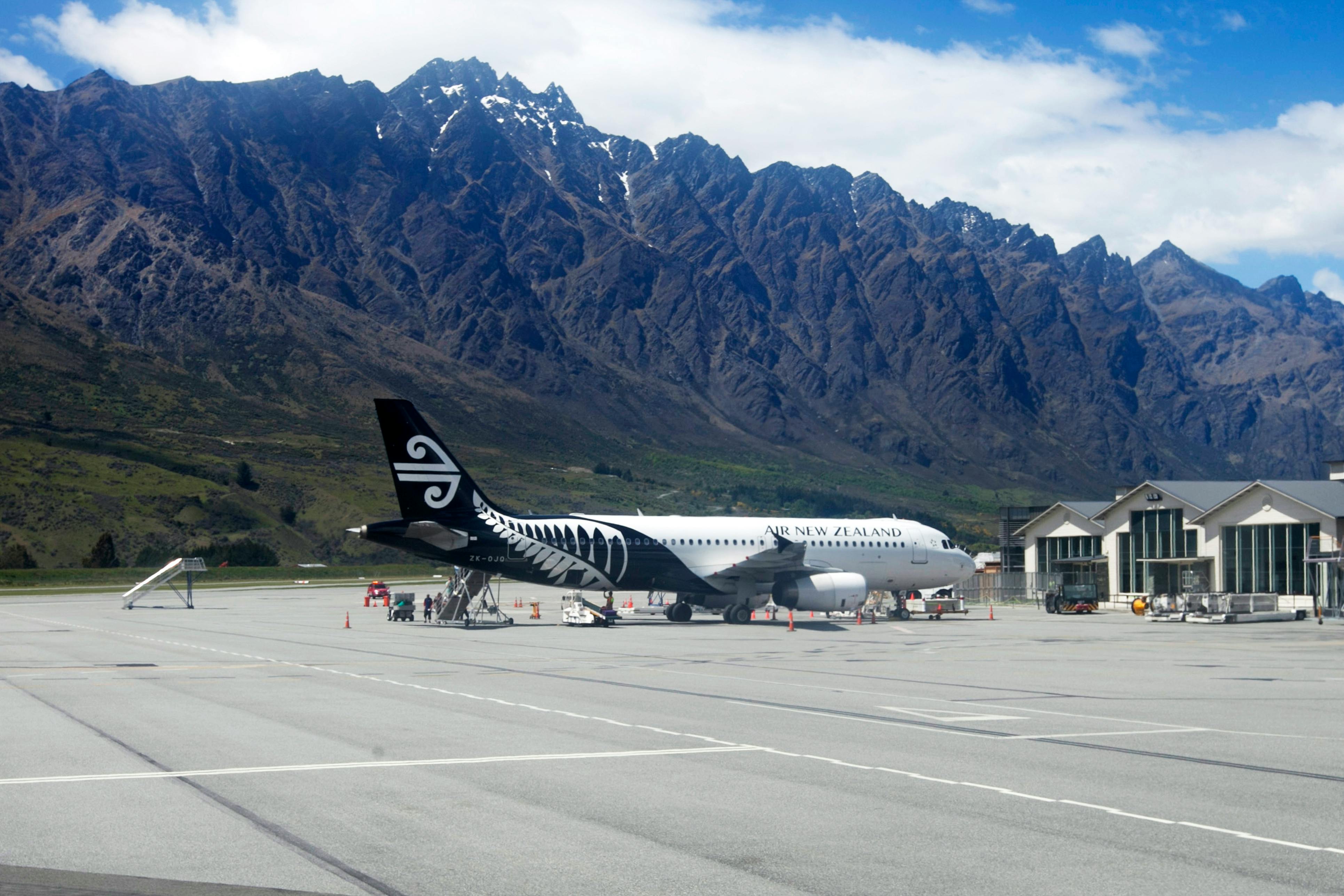CHAT
WITH US
WITH US
GET A
QUOTE
have questions? call us
+44 3330 907053

Blog • Oceania • 02 Jul 2024
Share this article
Moving to New Zealand means a new life with different experiences, chances, and ways of living. Here's everything to know if you're considering the move.

New Zealand shines as a top choice for those looking to move. It blends high quality of life with excellent work-life balance. The friendly communities and beautiful scenery draw people from all over the world.
New Zealand offers an outstanding quality of life, seen in top international rankings. In the 2021 HSBC Expat Explorer survey, it ranked 1st for future outlook and 2nd for lifestyle. Its climate allows outdoor fun all year. From beaches and forests to volcanoes and fjords, the landscapes are breathtaking. The education system is also top-notch, preparing young ones well.
One major lure to New Zealand is the work-life balance it provides. It ranks 2nd in the world for this. Kiwis work hard but they also value time off. The average wage is high, allowing for a comfy life. This balance means people can truly enjoy the country and its activities, fostering happiness.
New Zealand is famous for its welcoming communities, ranking 8th in community feel. This is a lot higher than the UK's spot. This friendly spirit is felt in big cities and small towns alike. Also, it stands as the world's 2nd safest country, boosting its appeal. The mix of friendliness and respect for indigenous culture makes fitting in easy for newcomers.
Getting ready for your move to New Zealand is key. Planning well can help make everything go smoothly and reduce stress. Here are some important steps to take as you begin your new adventure.
It's crucial to do your homework before you move. Learn about New Zealand's way of life, its culture, and the different regions. This will give you an idea of what to expect. A visit can also help you decide which part of New Zealand is the best fit for you.
Noting the difference in population helps set your expectations straight. With New Zealand having 5½ million people and the UK 68 million, life might be a bit quieter.
Choosing the right visa is essential for a smooth move. New Zealand offers different visas, depending on your situation and how long you plan to stay. Having the right visa, whether temporary or for permanent residency, is important. This helps avoid any issues later on.
Make sure you sort out all the necessary paperwork early. This includes your passport, work visas, and any relevant medical records. Doing this ahead of time can prevent any last-minute stress.
Understanding the cost of living in New Zealand is very important. It can be quite different from the UK. For instance, shipping a 3-bedroom house can cost between £7,000 - £9,400. The price depends on the size of your household and what you need.
Household Size | Duration | Cost Range (£) |
| 1-bedroom apartment | 9-12 weeks | £2,900 - £4,000 |
| 2-bedroom house | 6-9 weeks | £3,900 - £5,300 |
| 3-bedroom house | 6-9 weeks | £7,000 - £9,400 |
| 4-bedroom house | 6-9 weeks | £7,400 - £10,000 |
| 5-bedroom house | 6-9 weeks | £10,600 - £14,200 |
Also, think about the costs of bringing a car or putting a pet through quarantine. Importing a car might cost £1,500 - £2,000, plus £400 for customs clearance. Pet quarantine can range from £800 - £1,200. Tools like NZ Ready can be very useful. They help you plan your finances smartly for your move.

The healthcare in New Zealand is top-notch, providing a wide range of services to many people. This includes citizens, residents, and those working on visas for over two years, like Britons moving there. A special healthcare agreement also exists between the UK and New Zealand. It allows UK citizens to get quick medical help for sudden illnesses or injuries under certain rules.
But, not all health needs are covered, so it's wise to get good travel and health insurance before your trip. Particularly, people from the UK should know that their usual travel insurance might not pay for healthcare abroad. So, getting local health cover helps avoid worries.
New Zealand's Accident Compensation scheme is unique. It helps with medical bills if you're hurt in an accident, no matter whose fault it was. Mental health care is a focus too, with services such as the Mental Health Support Line available. This shows New Zealand takes a wholistic approach to healthcare.
When working in New Zealand, it is key to note that health services are mostly available to residents. This includes healthcare for children in your family. People from Australia and those on certain long-term work visas can also access public healthcare. This is if they are likely to become residents in the future.
Procedure | Cost (NZD) |
| Prostate cancer – Brachytherapy | $16,000 – $24,000 |
| Heart valve replacement surgery | $58,000 – $78,000 |
| Hernia repair | $4,000 – $12,000 |
| Cataract removal (eye surgery) | $3,000 – $5,000 |
| Gall bladder surgery | $6,000 – $11,000 |
| Total hysterectomy (surgery) | $7,000 – $15,000 |
| Hip or knee replacement | $20,000 – $30,000 |
| Skin cancer removal | $200 – $2,500 |
| Colonoscopy | $1,700 – $3,000 |
| Varicose veins | $7,000 – $10,000 |
| Tonsillectomy | $4,000 – $6,000 |
| Breast cancer surgery | $6,500 – $18,000 |
Many treatments that private insurance doesn't cover might need you to pay. About a third of surgeries you choose in New Zealand have to be paid by you. And many people opt to pay for half of these surgeries themselves.
For those retiring, you can claim your UK pension in New Zealand. If you worked in New Zealand, you can also get their Superannuation. Plus, with a tax agreement between the UK and New Zealand, your income won't be double-taxed. This is a big help financially.
In short, New Zealand's healthcare system is excellent, yet having the right insurance is very important. This way, you cover many health issues well. It lets you focus on enjoying your life in New Zealand without concerns about healthcare.
New Zealand is a great place to work, with many job opportunities. It's known for being safe and having a strong economy.
New Zealand has jobs in healthcare, education, and ICT. Its economy is stable, and the work-life balance is good. The 2021 HSBC Expat Explorer survey praised the country's lifestyle and high expat satisfaction.
Understanding work visa requirements is key for finding a job in NZ. You'll mostly need a job offer first. You might also need an IRD number and a UK criminal check. The right visa depends on your skills and job offer.
New Zealand has jobs in many sectors. It needs skilled workers in:
The table below shows sector demand and typical roles:
Sector | Demand Level | Typical Roles |
| Healthcare | High | Doctors, Nurses, Support Workers |
| Education | Medium | Teachers, Administrators |
| ICT | High | Software Developers, IT Specialists |
| Construction | High | Tradespeople, Engineers |
| Agriculture | Medium | Farm Managers, Labourers |
New Zealand welcomes skilled professionals. Its job market is diverse and robust, attracting people from all over the world.

The New Zealand education system stands out globally for its high standards and comprehensive approach. This system ensures a complete educational journey for all. Below, we explore primary and secondary education, as well as higher education in New Zealand.
Education is compulsory in NZ for children from 6 to 16 years old. This ensures everyone gets a strong basic education. Primary schools in New Zealand help students build their skills and knowledge. They do this with a low teacher-student ratio.
Most costs for schooling are covered by the government. Still, families might be asked to help with supplies and uniforms.
In the early childhood years, NZ focuses on providing a nurturing setting for kids. Play-based learning is a major part. The country is highly praised in the OECD for how much it spends on its young learners.
In middle school, with years 7 to 10, the focus is on personal attention. On average, there are only 16 students for each teacher. This means kids get the support they need to excel.
In New Zealand, tertiary education also maintains high-quality standards. The New Zealand Qualifications Framework gives value to all certifications. There are eight top universities in New Zealand. These universities offer a broad range of study programs. Every one of them ranks among the best 500 in the QS World University Rankings.
Full-time students can get interest-free loans. They only start paying it back once they're earning above a certain amount. This financial help, combined with a focus on modern curriculum, makes New Zealand a popular choice for higher education.
Key Points | Details |
| Compulsory Education Age | 6 to 16 years |
| Early Childhood Education | Play-based, safe environment |
| Teacher-Student Ratio | Primary: low ratios, Secondary: 1:14 |
| Number of Universities | Eight |
| Student Loans | Interest-free while studying full-time |
| National Curriculum | Values, competencies, core subjects |
New Zealand's education system is well-organised and solid. It remains a top pick for families wanting a top-notch education for their kids.
Getting the right place to live in New Zealand is key for those moving there. You can pick from cool city flats to big houses out in the suburbs. Make sure to think about your future plans and your budget.
In New Zealand, living costs are quite fair. Rent for a 1-bedroom place is about $1,851.51 (£902.33) a month. For a 3-bedroom house, you'll pay around $3,059.29 (£1490.94). These prices are a bit less than renting in the UK.
But, if you plan to buy a home in New Zealand, it might cost you more. In city centres, prices can go up to $10,106.32 (£4925.32). Outside the cities, a home might be about $8,030.04 (£3913.44). Even though buying is pricier here, you get more space and unique designs.
New Zealand has some amazing places for people to live, like Auckland, Wellington, and Christchurch. While Auckland is more expensive, it's full of life and great for meeting other expats. Wellington is known for its beauty, with its harbours and parks. Christchurch is loved for its history and community feel.
Where you choose to live really depends on what you like. Whether it's the city buzz or the peace of the countryside, New Zealand has something for everyone.
Moving pets to New Zealand requires detailed planning because of the strict rules there. It's the farthest journey pets from the UK often make. Thousands travel to New Zealand yearly.
Pets coming from the UK need a rabies shot at least 6 months before they go. Also, a blood test to check the antibody levels is necessary 3 months before the journey. After landing, cats and dogs must stay in quarantine for 10 days in either Auckland or Christchurch.
Getting an import permit from MPI in New Zealand is a must. DEFRA in the UK offers export forms and a vet plan that tells you what needs to be done before flying.
The next paragraph lists the costs for flying pets to New Zealand:
Pet Type | Cost of Flight | Quarantine Cost | Notes |
| Dog | £2400 - £8000 | £1000 | 10-day quarantine period |
| Cat | £1800 - £2200 | £1000 | 10-day quarantine period |
Certainly! I'll continue the article from the "Moving with Pets" section:
Once they finish quarantine, your pets are free and considered locals. Knowing these rules helps make their move to New Zealand easier.
It's important to get all the info from NZ Customs and follow their rules. This way, your pets will smoothly join you in your new home.

Driving in New Zealand is both like and unlike driving in the UK. You can use your UK driving licence for the first 12 months. After that, it's best to get an NZ driving licence to follow the driving regulations NZ.
In New Zealand, everyone drives on the left. You need to know the local speed and vehicle weight limits. Make sure you drive according to the driving regulations NZ to avoid trouble.
The roads in New Zealand often wind through hills and are sometimes narrow. This can slow down your trip, especially outside big cities. Make sure to leave early and be ready for changing weather.
Staying safe on the road in New Zealand means everyone wears a seatbelt. Using a mobile while driving is not allowed. Speeding or driving after drinking can get you in big trouble with the police.
After a year, get a New Zealand driving licence if you're still there. You might need to take a driving and theory test. If your licence is not in English, always have a translation ready.
Some driving tips for New Zealand: take breaks on long trips, don't drink and drive, and support the Tiaki Promise. This promise is about looking after the country for the future. With the right preparation, driving in New Zealand can be great.
Getting to know New Zealand's social and cultural mix is key to fitting in well. It's a lively blend of new and old that makes life exciting for those moving there. By learning about and respecting these differences, your move to New Zealand can be smoother and more rewarding.
New Zealand's culture is deeply connected to Māori traditions, forming a big part of its identity. The Māori bring a special touch to the country's culture with their rich history. Everyone in New Zealand honours their way of life, including their language and art.
Aspect | New Zealand | United Kingdom |
| Global Peace Index (2021) | 2nd | 33rd |
| Public Holidays Celebrating Indigenous Culture | Waitangi Day, Matariki | None |
| Population Density (people per sq km) | 18 | 281 |
It's a good idea to join in local activities and embrace how things are done in New Zealand for better social integration. Here are some tips:
Adapting to New Zealand's way of life means embracing both old and new cultural aspects. By showing respect for Māori traditions and becoming part of your local community, you can have a rich and welcoming experience. Coupled with its high life quality and safety levels, starting a new chapter in New Zealand can be truly fulfilling.
Moving to New Zealand from the UK is a big change that needs good planning. You must sort your visa and learn about the healthcare. Access to almost free healthcare and education is a big bonus for families. It includes free or low-cost doctors, specialists, surgery, and drugs.
New Zealand aims to get most of its power from green sources by 2025. This shows its care for the planet. The beautiful nature and efforts to protect it mean a lot. People who love nature will find New Zealand perfect. It has a change in weather across the year for many fun activities.
Buying food might cost more than in the US or UK. But, the price for rent and buying homes is lower. This makes living there more affordable. The transport system is great with buses, trains, and apps for rides. You can easily get around your new place. Making friends in New Zealand is easy, and you will enjoy a good balance between work and life.
Moving to New Zealand means starting a new life. Its varied nature and culture are waiting to be explored. Using helpful services like Deliver1 can make your move easier. With good planning and an open mind, you'll love your life there. New Zealand's good weather, top education, and healthcare attract many. It's a great choice for people moving from the UK.
If you need help moving to New Zealand, give Deliver1 a call or get a quick quote online!
We've helped thousands of people just like you simplify their move to NZ with our expert team and innovative customer portal. You can arrange everything simply online, get a quote in minutes and be on your way to a new life Oceania!
We love hearing from you-so please get in touch with any questions or queries.
We love hearing from you-so please get in touch with any questions or queries.
Working hours
Mon - Sat: 08:00 - 17:00
Sun: Closed
Call
+44 3330 907053Location
Unit 3, Newyears Green Lane
Newyears Green
Uxbridge
UB9 6LX
United Kingdom
